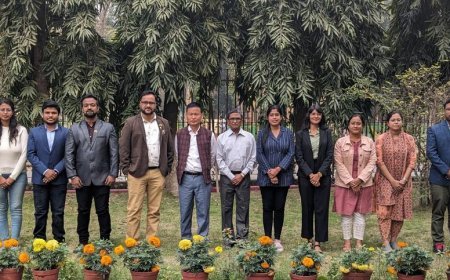ದಿ ಹಿಂದೂ ಸಂಪಾದಕೀಯ “Fate of Nations: On the 2024 Economics Nobel” ಬಳಸಲಾದ Idioms and Phrases

ದಿ ಹಿಂದೂ ಸಂಪಾದಕೀಯ “Fate of Nations: On the 2024 Economics Nobel” ಬಳಸಲಾದ Idioms and Phrases
The 2024 Sveriges Riksbank Prize in Economic Sciences, also known as the Economics Nobel, was awarded to three economists for their research on institutions and economic growth. Their work established that inclusive institutions — those that allow equal access and opportunity — are critical to the prosperity of nations. Conversely, extractive institutions, which concentrate power and wealth among a select few, hinder progress and economic development. The laureates’ research shows that the success of nations, at the end of the day, depends not only on natural resources or geographical advantages but largely on the rules and systems that shape governance.
Developing countries, particularly those in Asia, Africa, and Latin America, have much to learn from this research as they continue to build democratic systems and economic frameworks. The study warns against moving down the path of creating institutions that restrict participation, as seen in countries that have failed to progress despite resource abundance. Autocratic governments often create institutions that serve those close to people in power, rather than the broader population.
However, critics of the laureates’ work argue that it paints too rosy a picture of how Western institutions have developed over time. While it is true that these institutions evolved to promote growth, they are not immune to pressures from short-term populist policies or threats from illiberal movements. In fact, the study emphasizes that the rules of the game can change quickly if institutions become vulnerable to powerful actors who prioritize personal gain over national interest.
Democratic institutions in both developed and developing nations are under threat from rising populism and protectionist policies that seek to limit trade, restrict immigration, and undermine the independence of the judiciary. In the absence of strong governance, institutions cannot work for the upliftment of society as a whole, leading to stagnation and inequality.
1. At the end of the day
- Meaning: Ultimately or in the final analysis.
- Example: "At the end of the day, inclusive institutions matter most for long-term economic success."
2. Down the path of
- Meaning: Moving toward a particular outcome or direction.
- Example: "Countries with effective institutions tend to move down the path of prosperity."
3. Too rosy a picture
- Meaning: An overly optimistic or unrealistic view.
- Example: "Critics argued that the laureates painted too rosy a picture of Western institutions' development."
4. Rules of the game
- Meaning: The basic principles or standards that guide behavior in a particular field.
- Example: "Economic reforms changed the rules of the game, leading to rapid growth in India and China."
5. Under threat
- Meaning: At risk or in danger of being harmed or negatively affected.
- Example: "Democratic institutions are under threat from populist movements and illiberal policies."
6. Short-term populist policies
- Meaning: Policies designed to achieve quick, popular results, often at the expense of long-term stability.
- Example: "Short-term populist policies can undermine the stability of inclusive institutions."
7. Work for the upliftment
- Meaning: To promote improvement or development, particularly for disadvantaged groups.
- Example: "Inclusive institutions aim to work for the upliftment of the majority rather than a select few."
8. Close to people in power
- Meaning: Being in proximity to or having influence over those who hold authority.
- Example: "Autocracies often serve the interests of those close to people in power, neglecting the broader population."
What's Your Reaction?







































































































































